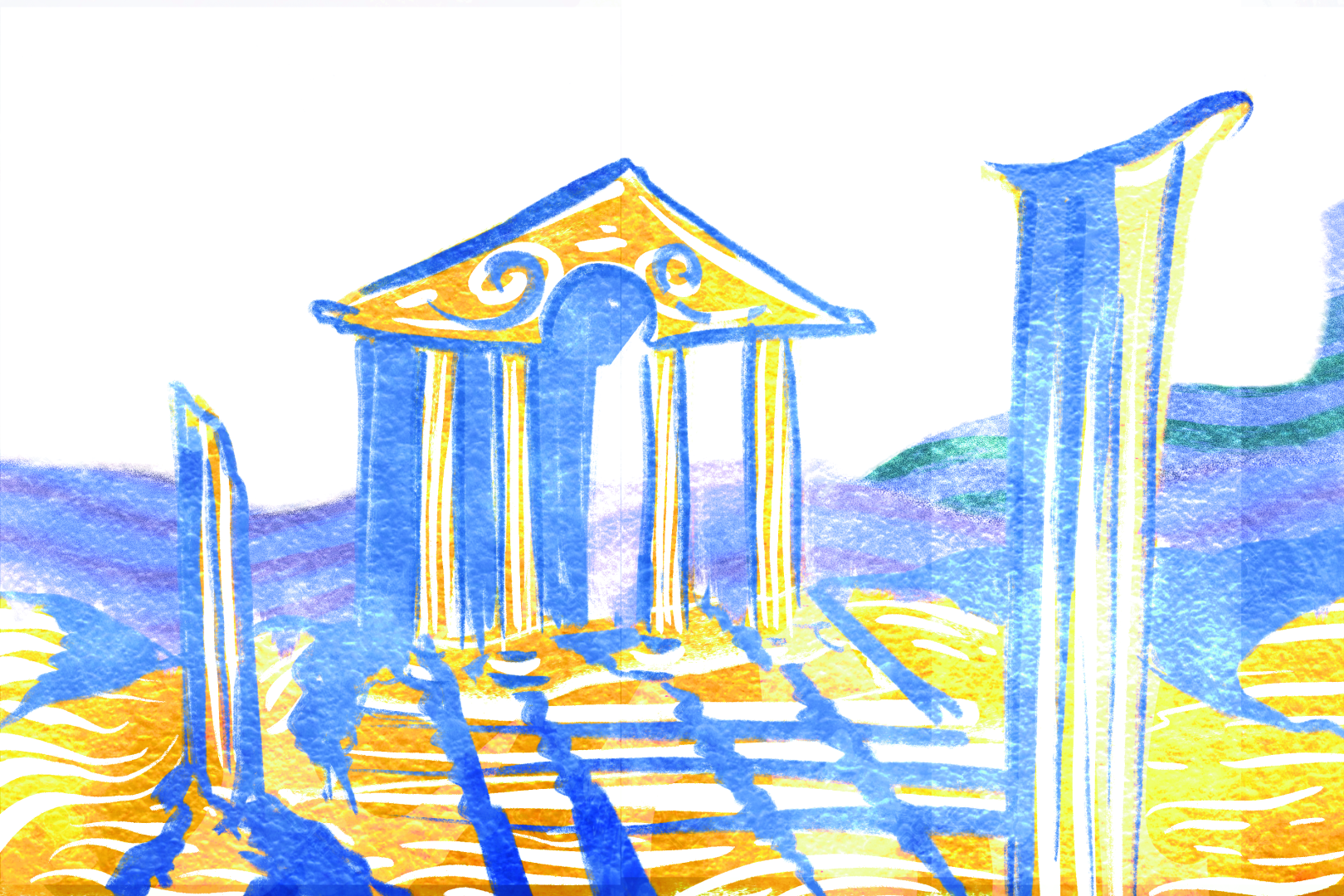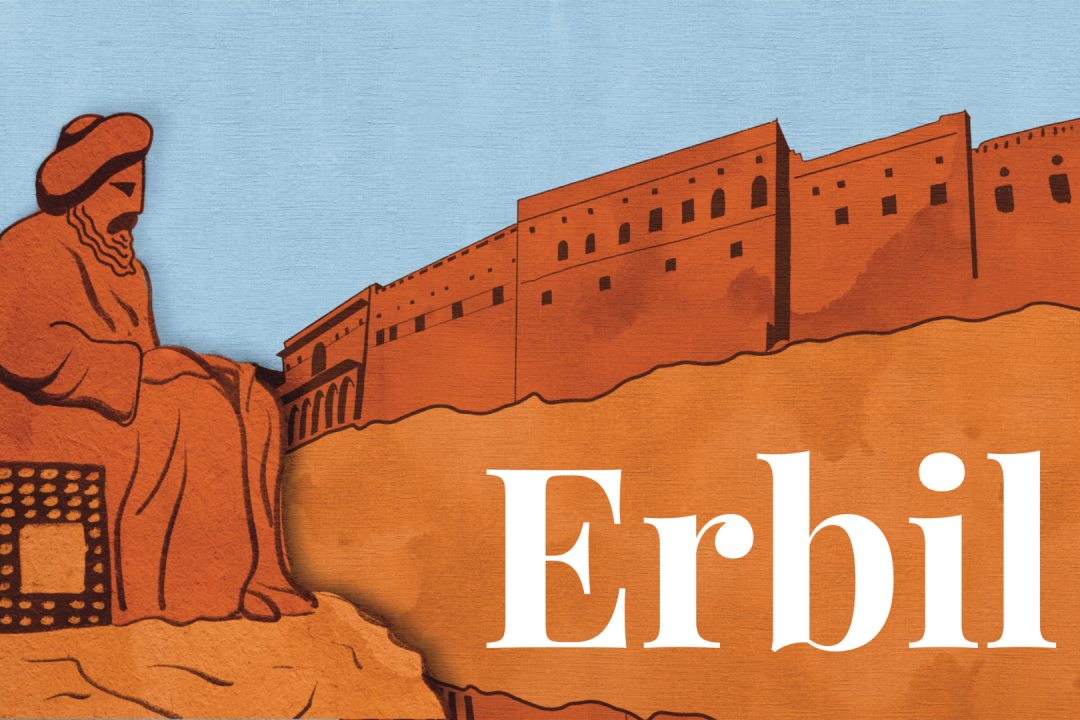
Iraq - Historical and Political Timeline
By: Lana ZibariBy: Lana Zibari & Dunya Soran
3500- The Sumer civilization establishes city-states in southern Mesopotamia.
2700- The dominant city-state is Ur which is ruled by the famous King Gilgamesh.
2330- The Akkadians conquer Sumer under the leadership of Sargon I.
2000- The Elamites from Iran capture the city of Ur.
1900- The Assyrians gain control of northern Iraq.
1792- Hammurabi is King of Babylon. He will establish the first written code of law.
705- The capital of the Assyrian Empire is moved to Nineveh in northern Iraq.
604- Nebuchadnezzar II becomes king of Babylon.
539- Cyrus the Great of the Persian Empire takes control of Iraq and the city of Babylon.
518- The capital of the Persian Empire is established at Persepolis in southern Iraq.
330- Alexander the Great conquers the Persians and takes control of Babylon.
144- The Parthian Empire gains control.
116- The Roman Empire under Trajan captures southern Iraq and defeat the Parthians.
224- The Sassanid Empire gains control.
646- Arab Muslims conquer the Sassanid Empire.
762- The city of Baghdad is founded as the capital of the Abbasid Caliphate. It will be the center of the Muslim world for nearly 500 years.
1055- Baghdad is captured by the Seljuk Turks.
1258- The Mongols invade Iraq causing devastation and killing hundreds of thousands of people, Baghdad is sacked.
1401- Tamerlane invades Iraq and once again sacks Baghdad.
1534- Iraq is conquered by the Ottoman Empire. Iraq is divided up into three provinces of the Ottoman Empire: Mosul, Basra, and Baghdad.
1914- World War I begins. The Ottomans are allied with the Central Powers of Germany and Austria.
1534 - 1918 - Overall the region is part of the Ottoman Empire.
British in power
1917- British troops invade Iraq and take control of Baghdad during WWI.
1920- British mandate in Iraq is approved by the League of Nations. They appoint Faisal I as King of Iraq.
1921- A Hashemite monarchy is organized under British protection. Faisal, son of Hussein Bin Ali, the Grand Sherif of Mecca, is appointed as king of Iraq.
1927- Oil is discovered north of Kirkuk.
1932- The British mandate in Iraq is dissolved and the kingdom of Iraq is formally granted independence. Britain’s military, however, maintains presence.
1939- World War II begins. Iraq allies with the Axis powers of Germany and Italy.
1941- The British invade Iraq to ensure oil supplies.
1945- Iraq joins the Arab League.
1948- Iraq attacks Israel along with the Arab League in the Arab-Israeli War.
1941- Iraq is preoccupied by Britain, after a pro-Axis coup, led by Rashid Ali al-Gaylani, takes place during WWII.
1958- A left-wing military coup led by Abd al-Karim Qasim overthrows the Hashemite monarchy. Iraq is declared a republic. Iraq leaves the Baghdad Pact. The monarchy is overthrown and the Republic of Iraq is founded.
1963- Prime Minister Abd al-Karim Qasim is ousted and executed during the Ramadan Revolution.
1968- Another Ba’athist led-coup puts Ahmad Hasan al-Bakr in power, Iraq finds itself under the authority of the Arab Socialist Ba'ath Party.
1972- Iraq nationalizes the Iraq Petroleum Company.
1974- Iraq grants limited autonomy to the Kurdistan Region.
1979- Hasan al-Bakr is forced to resign, Saddam Hussein becomes the president of Iraq.
1980- Iran-Iraq war begins.
1981- Iraqi nuclear reactor near Baghdad is destroyed by Israeli air raid.
1988- Halabja chemical attack takes place with roughly 5,000 people killed and many more injured. Iraq-Iran war results in a stalemate, ends by a ceasefire.
1990- Iraq invades annexes Kuwait, which paves the way for the first Gulf War.
1991- Iraq is forced to withdraw from Kuwait by a US-led military campaign The Persian Gulf War (also known as the First Gulf War) begins as a coalition of countries attack Iraq to free Kuwait. The mission is called "Operation Desert Storm." Iraq is defeated and forced out of Kuwait.
-Iraq is subjected to a weapons inspection program.
-Uprisings of Shi’ite and Kurdish populations take place in Iraq, causing a brutal crackdown.
-UN approved haven is established in northern Iraq to protect the Kurds and Iraq is ordered to end all military activity there.
1992- Southern no-fly zone is established, to protect the Shi’ites in the south of Iraq and for other strategic purposes.
1995- Oil-for-Food Program is established by the United Nations, which allows Iraq to partially export its oil to the world market in exchange for food, medicine and other humanitarian needs for its citizens, without allowing Iraq to boost its military capabilities.
1996- The US extends the area of the southern no-fly zone to just the south of Baghdad.
1998- Iraq ends cooperation with the United Nations Special Commission to Oversee the Destruction of Iraq's Weapons of Mass Destruction
1988- U.S and British Operation Desert Fox bombing campaign begins aime to destroy Iraq's nuclear, chemical and biological weapons programs.
2002- US President George W Bush warns the UN against the “grave danger” that Iraq holds.
-UN weapons inspectors return to Iraq with the backing of a UN resolution which threatens serious consequences if Iraq is in "material breach" of its terms.
Saddam ousted
2003- US-led invasion ousts Saddam Hussein’s government. Governing Council appointed by the U.S. meets for the first time.
-A suicide truck bomb wrecks UN headquarters in Baghdad, killing UN envoy Sergio Vieira de Mello.
- A car bomb in Najaf kills 125 people, including Shi’ite leader Ayatollah Mohammed Baqr al-Hakim.
-Saddam Hussein is found and captured in Tikrit.
2004- Suicide bombers attack Shi’ite festival-goers in Karbala and Baghdad, killing 140 people.
-Photographic evidence shows Iraqi prisoners abused by US troops at Abu Ghreib prison in Baghdad.
Sovereignty and elections
2004- US hands sovereignty to interim government that is headed by Prime Minister Ayad Allawi.
-Fighting in Najaf occurs between US forces and Shi’ite militia of Moqtada al-Sadr.
-Major US-led offensive against insurgents in Falluja takes place.
2005- Elections for a Transitional National Assembly take place.
-The parliament selects Kurdish leader Jalal Talabani as president. Ibrahim Jaafari, a Shi’ite, is named as prime minister.
-Surge in car bombings, bomb explosions and shootings take place. The government puts civilian death toll for May at 672, up from 364 in April.
-Masoud Barzani is sworn in as president of the Kurdistan Region of Iraq.
-Voters approve a new constitution, which aims to create an Islamic federal democracy.
-Iraqis vote for the first, full-term government and parliament since the US-led invasion.
Sectarian violence
2006- A bomb attack on an important Shi’ite shrine in Samarra unleashes a wave of sectarian violence in which hundreds of people are to be killed.
- Newly re-elected President Talabani asks Shi’ite compromise candidate Nouri al-Maliki to form a new government, ending months of deadlock.
-Abu Musab al-Zarqawi, the leader of al-Qaeda in Iraq, is killed in an air strike.
-Iraq and Ba’athist Syria restore diplomatic relations after nearly a quarter century.
-Saddam Hussein is executed for crimes against humanity.
After Saddam’s Death
2007- President Bush announces a new Iraq strategy, in which thousands more US troops will be deployed to shore up security in Baghdad.
- Kurdish and Shi’ite leaders form an alliance to support Prime Minister Maliki's government, but fail to bring in Sunni leaders.
-Controversy over private security contractors, after Blackwater security guards allegedly fire at civilians in Baghdad, killing 17.
- Britain hands over security of Basra province to Iraqi forces, marking the end of nearly five years of British control of southern Iraq.
2008 - Prime Minister Maliki orders crackdown on militia in Basra, sparking pitched battles with Moqtada al-Sadr’s Mehdi Army, leaving hundreds killed.
-US forces hand over control of the western province of Anbar, which was once an insurgent and Al-Qaeda stronghold, to the Iraqi government. It is the first Sunni province to be returned to the Shia-led government.
Security pact approved
2008- Parliament approves a security pact with the United States, under which all US troops are due to leave the country by the end of 2011.
2009- US troops withdraw from towns and cities in Iraq, six years after the invasion, formally handing over security duties to new Iraqi forces.
2010- Parliamentary election takes place. Parliament approves new government of all major factions in December. The last US combat brigade leaves Iraq.
2011- U.S. troops officially leave Iraq.
- Radical Shi’ite cleric, Moqtada al-Sadr, returns after four years of self-imposed exile in Iran.
-Unity government faces disorder.
-Arrest warrant is issued for vice-president Tariq al-Hashemi, a leading Sunni politician.
-Sunni bloc boycotts parliament and cabinet.
2012- Tight security for the Arab League summit in Baghdad. It is the first major summit to be held in Iraq since the fall of Saddam Hussein. A wave of pre-summit attacks kills a number of people. A 4.2 billion dollar deal is cancelled by Iraq to buy arms from Russia because of corruption allegations within the Iraqi government.
Violence intensifies
2013- Sunni insurgency intensifies, with levels of violence matching those of 2008. By July, the country is described as being yet again in a state of full-blown sectarian war. -Series of bombings hit the Kurdistan capital of Erbil, which is the first of such an attack since 2007. The Islamic State of Iraq group says it was responding to alleged Iraqi Kurdish support for Kurds fighting jihadists in Syria.
-Government says October is deadliest month since April 2008, with 900 killed. By the end of the year, the UN estimates the 2013 death toll of civilians as 7,157, which is a dramatic increase in the previous year's figure of 3,238.
201 - Islamist fighters infiltrate Falluja and Ramadi after months of mounting violence in mainly-Sunni Anbar province. Government forces recapture Ramadi but face entrenched rebels in Falluja.
-Prime Minister Al-Maliki's coalition wins a plurality at first parliamentary election since 2011 withdrawal of US troops, but falls short of a majority.
- Sunni rebels, led by the Islamic State of Iraq and the Levant, surge out of Anbar Province to seize the city of Mosul and other key towns. Tens of thousands flee amid atrocities. Kurdish forces, U.S and Iran assist government in repelling attacks.
Broad government
2014-Shi’ite politician, Haider al-Abadi, forms a broad-based government including Sunni Arabs and Kurds.
-The Iraqi government and the leadership of the Kurdistan Region sign a deal on sharing Iraq's oil wealth and military resources, amid hopes that the agreement will help to reunite the country in the face of the common threat represented by the Islamic State.
2015- Assyrian archeological sites of Nimrud and Hatra are destroyed by the Islamic State.
Offensive against Islamic state
2015-2016- Government and the Islamic State forces fight for control of Tikrit and Anbar Province.
2016- Supporters of Moqtada al-Sadr storm the parliament building demanding a new government to fight corruption and end allocation of government posts along sectarian lines. -Parliament recognizes the Shi’ite Popular Mobilization Units (PMU) militia as part of the armed forces with full legal status.
2017- The Kurds back independence in a referendum staged by the Kurdistan Regional Government. Baghdad imposes punitive measures on the Kurdistan Region as a result. Government forces with Shi’ite and Kurdish allies drive the Islamic State out of all but a few redoubts.
- Iraqi army offensive drives Kurdish forces out of Kirkuk and other disputed areas.
2018- Parliamentary elections. The political bloc of Shi’ite cleric Moqtada al-Sadr wins most votes. -Parlement selects Kurdish politician Barham Salih as president. He appoints Adel Abdul Mahdi as prime minister, with the support of the Shi’ite majority of MPs.
2019- At least 400 people die in protests against unemployment and corruption in Iraqi cities including Baghdad, prompting Adel Abdul Mahdi to resign.
2020- Prime Minister Mustafa al-Kadhimi takes office after Iraq’s parliament approved a new government following nearly six months of political wrangling.
2021-No ISIS defendants have been convicted of international crimes such as war crimes, crimes against humanity, or genocide.
-Iraq’s parliament passed the Law on Yazidi Female Survivors, which recognized crimes committed by ISIS including kidnapping, sexual enslavement, forced marriage, pregnancy, and abortion against women and girls from the Yezidi, Turkman, Christian, and Shabaks minorities as genocide and crimes against humanity
- Turkish airstrikes continued in 2021, targeting the Iranian Kurdish Party for Free Life of Kurdistan (PJAK) and Kurdistan Workers’ Party (PKK) members based in northern Iraq, in some cases killing civilians. Human Rights Watch was unaware of any investigations by the Turkish military into possible unlawful attacks it had carried out in northern Iraq or compensation of victims.
Source:
-https://www.bbc.com/news/world-middle-east-14546763
-Iraq History and Timeline Overview (ducksters.com)



